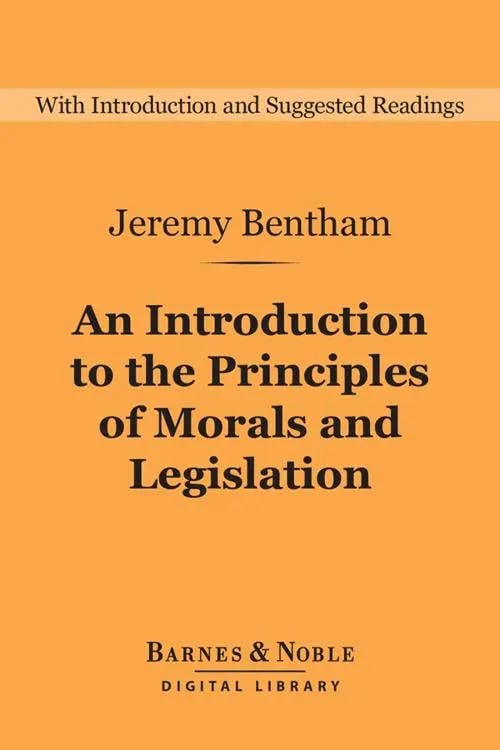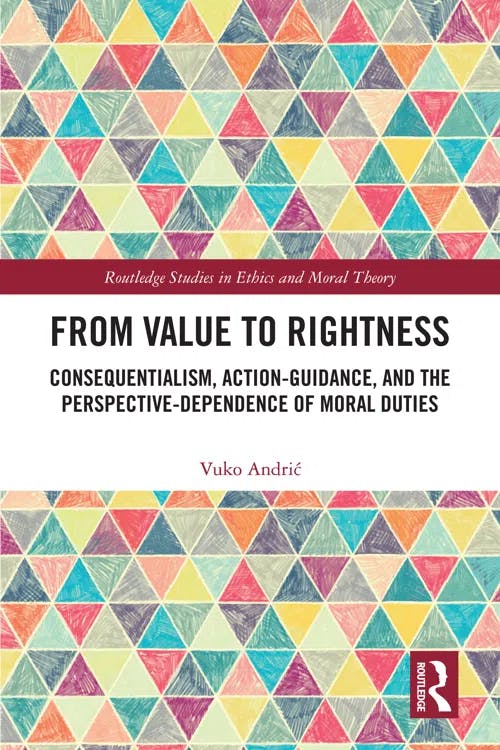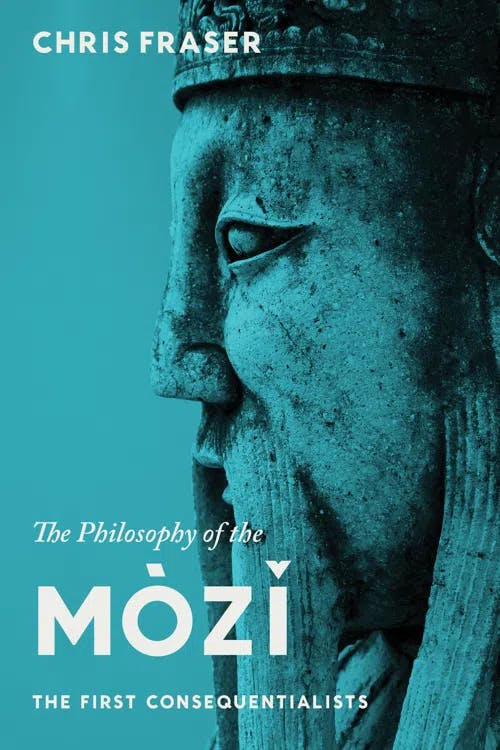What is Consequentialism?
MA, English Literature (University College London)
Date Published: 22.03.2023,
Last Updated: 24.01.2024
Share this article
Defining consequentialist ethics
Consequentialism, as the name suggests, refers to a family of ethical theories which judge the morality of a given action based on its consequences. Consequentialism’s underlying moral framework assumes that good outcomes are preferable to bad ones; that happiness is preferable to pain, and that consequences should be measured accordingly.
As Julia Driver observes in Consequentialism (2011),
The core idea captured by this approach has a good deal of intuitive appeal. One of the things, at least, that we look for when evaluating actions morally is their effects.
Julia Driver
The core idea captured by this approach has a good deal of intuitive appeal. One of the things, at least, that we look for when evaluating actions morally is their effects.
Since it is natural and intuitive to consider the effects of an action when assessing its morality, consequentialism is not the only ethical model to do so. What sets consequentialism apart, however, is that “the moral quality of a person's actions, or character, is solely determined by the effects of the action or character trait in question” (Driver, 2011). Consequences may be important in other ethical theories, to various degrees, but in consequentialism the consequences are (largely) all that matter.
As we will see, there are many different forms of consequentialism. Some consequentialists argue that the ends always justify the means, while others argue for a set of moral guidelines and a looser commitment to absolute consequences. Utilitarianism, with its foundational premise that the greatest total happiness for the greatest number should be pursued, is the most well-known version of consequentialism.
Consequentialism and utilitarianism
As Walter Sinnott-Armstrong notes, utilitarianism is the “paradigm case of consequentialism” (“Consequentialism”, The Stanford Encyclopedia of Philosophy, 2022). At the fundamental level, utilitarianism judges the moral quality of an action based on how it affects the sum total happiness of the greatest number of people. With its emphasis on the pursuit of happiness and the avoidance of pain, utilitarianism can be said to be hedonistic at heart, and it also calls to mind the pursuit of eudaimonia (happiness, or human flourishing and well-being) advocated by early Greek philosophers such as Epicurus and Aristotle. As a consequentialist theory, utilitarianism measures an action’s impact on the collective, rather than individual, level. Some utilitarians extend this measurement to include animals, with a creature’s ability to suffer being the key qualifier for its inclusion in the consequentialist equation.
The conceptual history of utilitarianism is rich and lengthy, but the two key thinkers behind its classic form are Jeremy Bentham (1748–1832) and John Stuart Mill (1806–1873). Generally speaking, Bentham’s utilitarianism does not discriminate between different types of pleasure and pain. For Bentham, the source of pleasure and pain is not to be included in our moral calculation — we only need to be concerned with the raw results. A stereotypically highbrow source of pleasure (such as intellectual study) would not be favored over a lowbrow source (such as a hearty meal), and vice versa. Using the felicific calculus (also referred to as the hedonic calculus), we are able to arrive at the sum total of pleasure and pain that a given action brings to all affected sentient beings (including animals). In Bentham’s view,
An action then may be said to be conformable to the principle of utility [...] when the tendency it has to augment the happiness of the community is greater than any it has to diminish it. (An Introduction to the Principles of Morals and Legislation, 1789 [2012])
Jeremy Bentham
An action then may be said to be conformable to the principle of utility [...] when the tendency it has to augment the happiness of the community is greater than any it has to diminish it. (An Introduction to the Principles of Morals and Legislation, 1789 [2012])
John Stuart Mill, on the other hand, distinguishes between what he sees as higher and lower pleasures; believing that it is also important to take into account the quality of pleasure and not just the quantity. As Mill famously writes in Utilitarianism (1861 [2016]),
It is better to be a human being dissatisfied than a pig satisfied; better to be Socrates dissatisfied than a fool satisfied.
John Stuart Mill
It is better to be a human being dissatisfied than a pig satisfied; better to be Socrates dissatisfied than a fool satisfied.
In Mill’s view, an unhappy human being’s experience is still of a higher quality than a happy pig’s experience. Similarly, the experience of an unhappy deep thinker like Socrates is regarded as more valuable than the experience of a happy fool. Mill is making a qualitative judgment that takes into account the type of happiness experienced, rather than the sheer quantity of happiness alone. Although the quantity may be lower in these scenarios, Mill regards the quality as higher and therefore more desirable.
Under classical utilitarianism, then, the most moral path is that which results in the greatest sum total of happiness, and the least sum total of pain, for all those affected. But how can the consequences of an action be measured in practice? Do we draw a line somewhere, or are we meant to anticipate the long string of consequences and secondary effects any given action may cause in the future? What if we expect an action to have positive consequences, but it actually has negative consequences? Would we still have made an ethical choice? As we will explore in the next section, there are different formulations of consequentialism which seek to address some of these issues.
Different forms of consequentialism
Classical utilitarianism, as we’ve discussed, is the prime example of a consequentialist ethical theory. But now let’s zoom out, and consider its place in the wider family of consequentialist ethical models.
Objective and subjective consequentialism
Broadly speaking, the classical utilitarianism previously discussed is an example of objective consequentialism. As Vuko Andrić explains in From Value to Rightness (2021),
Theories like classical utilitarianism are versions of objective consequentialism. According to objective consequentialism, the rightness and wrongness of actions depend on the consequences that actions do in fact have.
Vuko Andrić
Theories like classical utilitarianism are versions of objective consequentialism. According to objective consequentialism, the rightness and wrongness of actions depend on the consequences that actions do in fact have.
In objective consequentialism, the actual consequences are measured — not the presumed, or intended, consequences of an action. But subjective consequentialism is different. Andrić continues:
According to subjective consequentialism, the rightness and wrongness of actions depend on foreseen or foreseeable consequences. According to a subjectivist version of classical utilitarianism, for example, the rightness and wrongness of actions depend on the sum total of happiness that the agent foresees or can foresee the actions to have. (2021)
Subjective consequentialism, then, is more forgiving of the moral agent — and less cognitively demanding (Andrić, 2021). It is not necessary to predict, with 100% accuracy, what the vast web of consequences may be for any given action. For an action to be morally good, under subjective consequentialism, the moral agent is only required to measure the consequences they can be reasonably expected to foresee.
Objective consequentialism has been subject to criticism due to its demanding and unforgiving implications, and so subjective consequentialism is often suggested as a less problematic model to follow (Andrić, 2021).
Act and rule consequentialism
Classical utilitarianism also belongs under the wider banner of act consequentialism — as it predicates the morality of an action on nothing but the raw results of that action. Under act consequentialism, the ends completely justify the means. This puts it in direct opposition with deontological ethical models, which hold that there are intrinsic and inviolable principles such as truth and justice which we should adhere to, no matter the consequences.
Andrić argues that both objective and subjective consequentialism belong under the umbrella of act consequentialism, as they make reference to actual consequences — even if, with subjective consequentialism, these are only the “expected or rationally expectable consequences” (2021).
Because of its commitment to raw consequences above all else, act consequentialism has received heavy criticism. As Julia Driver observes in Consequentialism (2011),
One serious problem is that act-consequentialism seems, in principle, anyway, incompatible with our intuitions about justice, since the theory might require that we actually violate someone's rights in order to promote overall good.
Julia Driver
One serious problem is that act-consequentialism seems, in principle, anyway, incompatible with our intuitions about justice, since the theory might require that we actually violate someone's rights in order to promote overall good.
Driver gives the example of a sheriff who has to decide whether to condemn an innocent man to death in order to appease a mob, or save the man and lose twenty children instead due to the mob’s angry stampede. In this case,
[T]he act-utilitarian seems to be committed to holding that allowing the innocent man to be hanged is the right thing to do because it leads to the death of only one innocent person, as opposed to twenty. (Driver, 2011)
Some act consequentialists, of course, might still regard such an outcome as the lesser of two evils. They might argue that the net overall happiness promoted by saving twenty children outweighs the pain caused by the unjust death of one man. But if such ethical quandaries are regarded as an issue, the main alternative to act consequentialism is rule consequentialism.
Under rule consequentialism, consequences are not all that matter. Instead, specified moral rules are also followed. These rules are not just any rules, however — they are still identified with reference to the consequences that following that particular rule would generally have. As Driver summarizes,
The rule-utilitarian holds that the right action is not the action that results in the best overall consequences, rather it is the action performed in accordance with the set of rules which maximize the good. (2011)
If murder, for example, is generally associated with consequences which do not maximize the good, then rule utilitarians would see murder as immoral — even in the specific, hypothetical circumstances in which murder might actually result in the best overall outcomes for all those involved. However, in contrast with deontological models, murder would still not be seen as intrinsically immoral. It would only be seen as immoral due to its consequences in general.
There is some crossover here with motive consequentialism, in which the motives of the moral agent are the salient factor in any ethical measurement. If the moral agent follows motives which generally lead to good outcomes, then their resultant actions can be regarded as moral — even if the actual consequences fall short of this ideal.
Ethical egoism
Although utilitarianism, with its focus on collective well-being, is the most well-known version of consequentialism, there is another version of consequentialism which is focused on self-interest alone: ethical egoism. As Robert Shaver writes,
Ethical egoism claims that I morally ought to perform some action if and only if, and because, performing that action maximizes my self-interest. (“Egoism” in The Stanford Encyclopedia of Philosophy, 2023)
Ethical egoism is seen as a branch of consequentialism as it still measures the morality of an action according to its consequences — except in this case, the consequences for the moral agent themselves. Individual self-interest is all that is taken into account, with the happiness and pain caused to others being dismissed from the equation.
If the logic of egoistic consequentialism is followed to its conclusion, then, it would prioritize the fleeting happiness of one individual over the long and drawn-out suffering of countless others (if, hypothetically, this individual’s happiness is also not sufficiently reduced by guilt or empathy).
Criticism of this egoistic form of consequentialism has been severe, with many arguing that it is nothing more than a flawed justification for selfishness. It could also be argued that, in a world in which our own well-being is bound up with the well-being of others, egoistic consequentialism could actually be (ironically) self-defeating. If ethical egoism was universalized, with each individual only acting in accord with their self-interest, then the well-being of each individual would actually suffer due to their dependence on others.
Mohism
Mohism, named after the ancient Chinese philosopher Mòzǐ (c.470–391 BCE), is notable for its emphasis on the collective good and the importance of impartial care for others. As Chris Fraser argues in The Philosophy of the Mòzĭ (2016),
The Mohists may also have been the first thinkers in the world to build a systematic ethics around an explicit conception of impartiality, expressed through their notions of jiān 兼, or ‘all-inclusiveness,’ and tiān xià zhī lì 天下之利, or ‘the benefit of all the world.’
Chris Fraser
The Mohists may also have been the first thinkers in the world to build a systematic ethics around an explicit conception of impartiality, expressed through their notions of jiān 兼, or ‘all-inclusiveness,’ and tiān xià zhī lì 天下之利, or ‘the benefit of all the world.’
Mohism is thought to be “history’s first version of consequentialism”, as it focuses on the consequences of actions for everyone — “a conception of the public good comprising material welfare, an abundant population, and sociopolitical ‘order’ ” (Fraser, 2016).
Consequentialism: an everyday example
Lofty ethical discussions can sometimes feel quite abstract, and removed from our everyday experience. When looking for a concrete example to discuss, we could select an important issue like euthanasia, as utilitarianism has a valuable contribution to make here with its focus on the avoidance of pain and the promotion of happiness. But such debates are already well-trodden, and it may be interesting to turn our attention to the smaller web of consequentialist ethical decisions we make each day (even if we do not recognize them as such). Let’s consider just one of these everyday examples.
We are in the supermarket, debating which products to buy and scrutinizing their packaging for clues. We might be attracted to products with biodegradable packaging, or organic products which offset their carbon emissions. The environment would not be saved overnight due to our decision, but we may feel that our small action contributes to the popularity of products which are aiming to lessen their impact on the environment. The underlying ethical motivation behind this might be that the planet is worth saving in its own right, or we might be motivated by the reduced suffering this would bring to animal and human life (both now and in future generations). In some ways, then, when we are considering the environmental impact of our shopping habits we are engaging in consequentialist ethical decision-making.
A strict utilitarian, of course, might argue that an optimal consumer strategy would favor locally sourced goods, and that other considerations (such as modern slavery in production processes) should also be taken into account in order to maximize happiness and minimize pain. Some utilitarians might also argue that we should minimize unnecessary expenditure, and give as much of our income as possible to charity. In theory, this would maximize the sum total of collective happiness to the greatest degree. The degree, and quality, of collective human happiness would be better served if a billionaire were to save lives through charitable donations, for example, instead of leaving the money in their bank.
The above example may seem trivial, but it shows the ways in which consequentialist decision-making suffuses our everyday life. Consequentialism underlies the way we choose to spend our money and time, the decisions we make in a voting booth, and each small interaction we have with the world around us. Together, the small everyday decisions we make contribute to larger and wider collective consequences — forming the societies we end up living in.
Consequentialism FAQs
What is consequentialism in simple terms?
What is consequentialism in simple terms?
Is utilitarianism the same as consequentialism?
Is utilitarianism the same as consequentialism?
What are the best books on consequentialism?
What are the best books on consequentialism?
Further reading on Perlego
Hiller, A., Ilea, R. and Kahn, L. (eds) (2013) Consequentialism and Environmental Ethics. Taylor and Francis. Available at: https://www.perlego.com/book/1680357/consequentialism-and-environmental-ethics-pdf
Mulgan, T. (2014) Understanding Utilitarianism. 1st edn. Taylor and Francis. Available at: https://www.perlego.com/book/1558515/understanding-utilitarianism-pdf
Scarre, G. (2020) Utilitarianism. 1st edn. Taylor and Francis. Available at: https://www.perlego.com/book/1828889/utilitarianism-pdf
Singer, P. (2011) Practical Ethics. 3rd edn. Cambridge University Press. Available at: https://www.perlego.com/book/2883167/practical-ethics-pdf
Slote, M. (2020) Common-Sense Morality and Consequentialism. Taylor and Francis. Available at: https://www.perlego.com/book/1629632/commonsense-morality-and-consequentialism-pdf
Bibliography
Andrić, V. (2021) From Value to Rightness. Taylor and Francis. Available at: https://www.perlego.com/book/2568217/from-value-to-rightness-consequentialism-actionguidance-and-the-perspectivedependence-of-moral-duties-pdf
Bentham, J. (2012) An Introduction to the Principles of Morals and Legislation (Barnes & Noble Digital Library). Barnes & Noble. Available at: https://www.perlego.com/book/3716192/an-introduction-to-the-principles-of-morals-and-legislation-barnes-noble-digital-library-pdf
Driver, J. (2011) Consequentialism. Taylor and Francis. Available at: https://www.perlego.com/book/1618923/consequentialism-pdf
Fraser, C. (2016) The Philosophy of the Mòzĭ. Columbia University Press. Available at: https://www.perlego.com/book/774115/the-philosophy-of-the-mz-the-first-consequentialists-pdf
Mill, J. S. (2016) Utilitarianism. Edited by Andrew Bailey. Broadview Press. Available at: https://www.perlego.com/book/2030606/utilitarianism-ed-bailey-pdf
Shaver, R. "Egoism", The Stanford Encyclopedia of Philosophy. Spring 2023 Edition. Edward N. Available at: https://plato.stanford.edu/archives/spr2023/entries/egoism/
Sinnott-Armstrong, W. "Consequentialism", The Stanford Encyclopedia of Philosophy. Winter 2022 Edition. Available at: https://plato.stanford.edu/archives/win2022/entries/consequentialism/
Warburton, N. (2011) A Little History of Philosophy. Yale University Press.
Warburton, N. (2014) Philosophy: The Classics. 4th edn. Taylor and Francis. Available at: https://www.perlego.com/book/1557108/philosophy-the-classics-pdf
MA, English Literature (University College London)
Andy Cain has an MA in English Literature from University College London, and a BA in English and Creative Writing from Royal Holloway, University of London. His particular research interests include science fiction, fantasy, and the philosophy of art. For his MA dissertation, he explored the presence of the sublime in Shakespeare’s plays.





